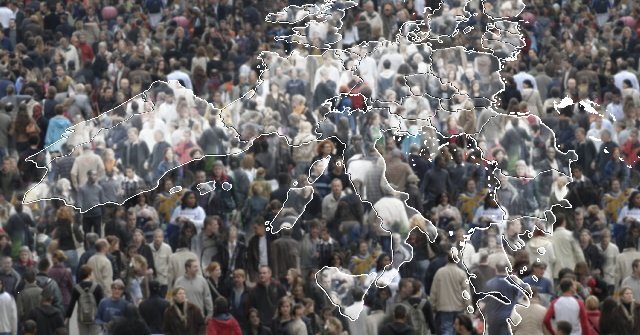The debates on European democratization are as powerful as ever. At the Amsterdam summit, Lionel Jospin, when noted that we should try to find ways to overcome the democratic deficit, answered “ok, what if we talk about the challenge of democracy instead”. Now it’s possible to analyze the issue by taking in account the imperial character of Europe.
The fundamental question which is still present is the relation between the European empire, the people and the democracy. But to answer this, first we must go back to the imperial dimension of Europe, which may seem paradoxical. Yet, the two major imperial elements are present - the size and the bringing together of many people.
The European Union now covers an area which no empire in history dreamed of dominating. Neither the Roman empire, a model to all others, nor that of Charlemagne, not even that of Napoleon or Hitler have attained the dimension of the 27 EU states. This implies that this entity – without speaking of it as a ‘state’ – includes a large number of different peoples. From French to Greek, from Portuguese to Estonians and from Britons to Livonians (small Finno-Ugric people of Latvia), not only the ‘owners’ of European land but also many small regional nations.
The characteristic of this empire is that it’s an empire without an emperor. Even if we liken it to the Holy Roman empire in which the electors chose the Emperor amongst themselves - like the members of the European Council (comprising the heads of state and governments in EU) have been choosing, since the Lisbon Treaty, the permanent President of the Council. Europe is not represented by one single figure, it looks more like the Roman empire in the time of Diocletian in which four governors shared the task of governing.
However, if Europe is like an empire (admittedly a small one), it has another trait in common. As Anne-Marie Le Gloannec underlines it - the empires could be close to the rule of law and protect the rights of the people but are rarely democratic. In fact, we don’t have an example of a democratic empire. The Roman empire gave citizenship to all free men in the 3rd century, the Hungarians of the Habsburg empire could assert their rights in court, but back then no one could exercise real democratic rights in the sense that we know them today.
These democratic rights are historically associated with the model of the nation state even if this relation is not definitive. Empires tend to guarantee the political rights of their constituencies but not those of their subjects. They lack the feeling which in national states makes the other his ‘alter ego’, the one to whom you willingly transfer your income by social policies, the one, for whom you can die in war and thus the one who could legitimately represent you. But it took three centuries for the states to develop this feeling, through school and conscription. The EU is only 60 years old, without army, with no control on school curriculum. However, it has made great progress towards democratization, namely through the increased power of the European Parliament. Its co-existence is still under construction.


1. On 10 October 2011 at 11:20, by Christoph Replying to: The European Empire, the people and the democracy
Replying to: The European Empire, the people and the democracy
“The European Union now covers an area which no empire in history dreamed of dominating.” As far as I know the British Empire was even more vast then the union is now.
“The characteristic of this empire is that it’s an empire without an emperor.” Exactly, and therefor it isn’t an empire at all in my opinion. An empire is per definitionem an extensive territory or a number of territories ruled by a single supreme authority. That’s not the case. So, speaking of the EU as an empire makes no sense at all.
2. On 15 October 2011 at 16:38, by Richard Replying to: The European Empire, the people and the democracy
Replying to: The European Empire, the people and the democracy
“The European Union now covers an area which no empire in history dreamed of dominating. Neither the Roman empire, a model to all others, nor that of Charlemagne, not even that of Napoleon or Hitler have attained the dimension of the 27 EU states.”
It should be noted that the British Empire at it’s height encompassed one quarter of the world’s land mass and one quarter of it’s population. In modern terms this would render it around three or four times the size of the current European Union which is somewhat smaller in scale and decidedly provincial in terms of diversity of peoples.
Follow the comments: |
|
